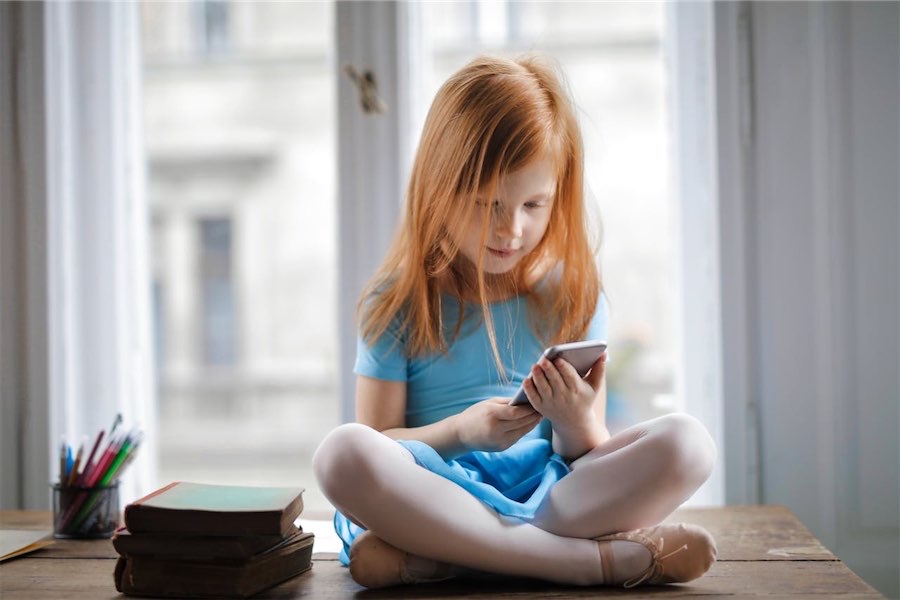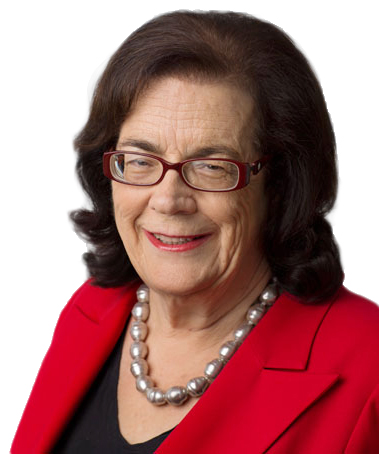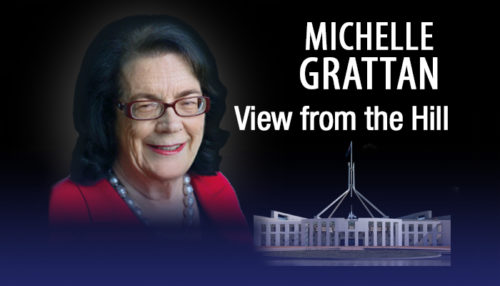
There’s growing momentum for governments to fight social media’s grip on children, writes political columnist MICHELLE GRATTAN.
While federal politics often seems “top down”, some issues are pushed on to the national agenda from lower levels. We’re seeing this with the increasing concern to protect kids from the harmful effects of social media.

This week Prime Minister Anthony Albanese sympathised with calls for limits on children’s access to social media, while last week’s budget allocated funds for a trial of age verification, originally recommended by the eSafety Commissioner. The government in November also brought forward by a year the scheduled review of the Online Safety Act.
But on the whole, the federal government has been lagging behind the states and activist parents on an issue that has immense ramifications for a young generation that has been recording increased levels of stress and mental health problems.
SA Premier Peter Malinauskas has recently said his government will legislate, if feasible, to prohibit children under 14 accessing social media accounts. For those aged 14-15 parental consent would be needed.
This week Malinauskas had talks in Washington with the US Surgeon General Vivek Murthy about the issue. The premier later told the Adelaide Advertiser Murthy had endorsed the SA plan. “He (Dr Murthy) was essentially saying, governments don’t have time to waste because this is now creating almost a mental health emergency among young people.” Murthy also told him young people were more open to the idea of relinquishing social media than often thought, if their friends were off it, too.
Summit to address increasing online harm
In NSW, Premier Chris Minns this week announced a summit, to be held in October, “to address the increasing harm online platforms are having on children and young people”.
In Minns’ electorate of Kogarah, in Sydney’s south, there’s been intense activity on the issue. A group of parents with children at Our Lady of Fatima Catholic Primary School and St Ursula’s College got together a few years ago to discuss delaying their kids getting on to smartphones and social media.
Parent Dany Elachi, whose daughter was 10 at the time, told me they thought concerted action gave them the best chance of “staying the course” against the pressure from their children’s complaints, or pleas, that “everyone else” had a smartphone.
The group of parents had no connection with Minns, then opposition leader, until reading an article by him in their local paper. His concerns chimed with their own and they reached out to him.
The Heads Up Alliance is now a national movement of thousands of Australian parents delaying smartphones and social media for their children.
The group lobbied Catholic authorities, and there is now a widespread ban on mobile phones in Sydney Catholic schools.
Minns, as premier last year, implemented a ban on mobile phones in NSW public schools. All states and territories have acted on phone bans, with Queensland and the ACT falling into line earlier this year.
These have been important steps, but perhaps the easy ones. More robust action involves greater challenges to big tech and their revenue and customer streams. Capturing the kids is central to their business models.
The Albanese government has already had a taste of what taking on big tech can look like in its fight with Elon Musk over the eSafety Commissioner’s demand that X (formerly Twitter) remove a post showing the stabbing of a bishop at a Sydney Assyrian church.
Tougher action in dealing with social media is one area where potential bipartisanship should be possible. Opposition communications spokesman David Coleman has been a strong proponent of protecting children and age verification.
The NSW summit will be attended by senior officials, academics, representatives from other jurisdictions, and people from leading social media platforms.
Age-limited access to social media
The idea of age-limited access to social media – the next logical step – is guaranteed to be a hot topic.
While states have been leading the way, to have a prospect of working properly, any legislated ban on young people accessing social media sites needs to be national. There are likely also constitutional constraints to be overcome. Minns has expressed doubt a ban would be enforceable at the state level.
Some social media companies argue they don’t accept children under 13 setting up accounts. But this has been unenforceable, even assuming the companies wanted to enforce it.
Albanese said: “We want to make sure that any changes that are made actually work. You don’t want them being circumvented around the side door, if you like.”
That’s right – up to a point. It should not be an excuse for avoiding action. In reality, no ban is likely to be absolutely watertight.
Critics of a ban cite privacy, concerned about the sort of information that would be handed to tech companies to establish a user’s age. But age has to be proven in many circumstances, and various methods could be used to minimise the privacy problem.
Also, some critics say social media is important especially for young people who need connection; they say there would be harm in denying this to them. Here it’s a question of weighing one side against the other: the negatives of social media against the positives for young people.
In his recent widely-publicised book, The Anxious Generation, social psychologist Jonathan Haidt argues Gen Z (born after 1995) have been “rewired”. He dubs them the “the anxious generation”.
With a combination of over-protective parents and the ubiquity of modern tech, Haidt says we’ve seen a move from a “play-based childhood” to a “phone-based childhood”.
“Gen Z became the first generation in history to go through puberty with a portal in their pockets that called them away from the people nearby and into an alternative universe that was exciting, addictive, unstable, and […] unsuitable for children and adolescents,” Haidt writes.
Girls adversely affected by social media
This had serious consequences for their mental health, he argues, with girls adversely affected in particular by social media, and boys more by pornography and addiction to video gaming.
While Haidt primarily writes of the American scene, he includes findings from other western countries, which he says show similar trends.
Haidt prescribes four lines of action. Parents should not give their children smartphones before high school. Children should not be on social media before 16. Schools should be phone-free. Children should have more unsupervised play and childhood independence.
Those who fear that social media, for all its pluses, can be a serious threat to young people, will believe a lot more needs to be done than we’re doing now. The burden is not one that can be carried by government, schools, or other authorities alone. Parents must also do their part. But parents need help from the institutions to do it.
Back at ground zero in the battle to curb harm from social media, Dany and his wife have “stayed the course”. Their daughter, now almost 15, doesn’t have a smartphone or a social media account. “We bought her a basic phone,” Dany says. “But it’s so unappealing she rarely uses it.”
Michelle Grattan, Professorial Fellow, University of Canberra. Republished from The Conversation.
Who can be trusted?
In a world of spin and confusion, there’s never been a more important time to support independent journalism in Canberra.
If you trust our work online and want to enforce the power of independent voices, I invite you to make a small contribution.
Every dollar of support is invested back into our journalism to help keep citynews.com.au strong and free.
Thank you,
Ian Meikle, editor




Leave a Reply